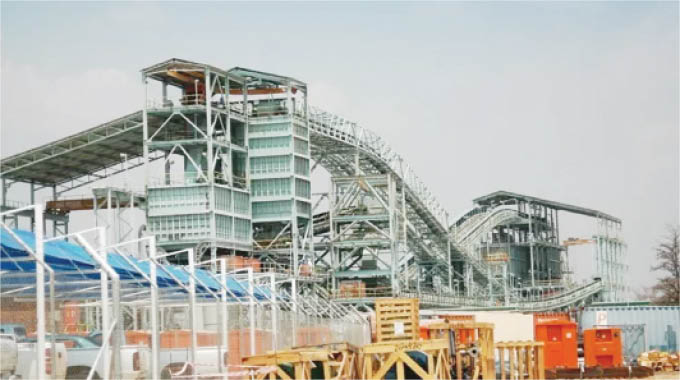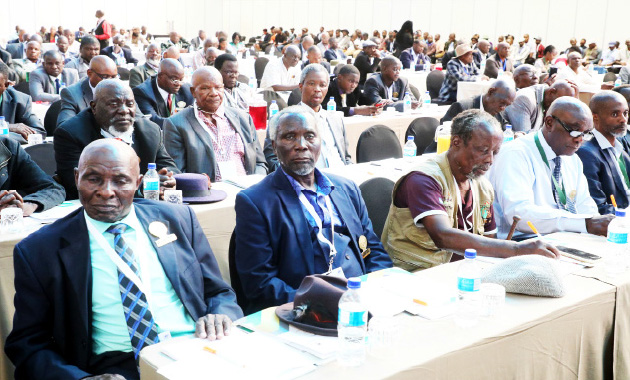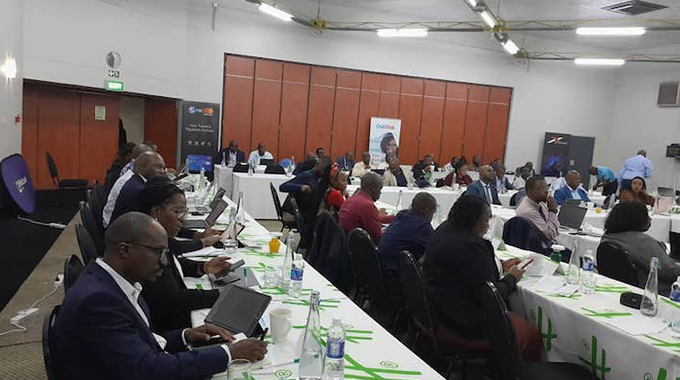Platinum firms downsize due to plummeting metal prices platinum prices slump

Nqobile Bhebhe, [email protected]
Zimbabwe’s platinum producers, hit by the global softening of metal prices, which have a bearing on financial performance and national revenue collections, are resorting to trimming their workforce to stay afloat.
The price slump is attributed to a slowdown in global demand, particularly from the automotive industry, a major consumer of platinum.
Early this month, Mimosa Mining Company resolved to lay off top managerial staff and supervisors as a way of remaining afloat, amid declining global metal prices.
Mimosa said 33 managers and supervisors had been affected.
On Monday, the country’s largest platinum producer —Zimplats — announced that it was following suit.
In its half-year revenue to December 31, 2023, it reported a revenue of US$372,8 million, 32 percent lower than the prior-year comparative period.
It revealed that in response to softening metal prices, which affected the financial performance, it was exploring several survival strategies with stringent measures to contain costs and preserve cash.

USD
In instituting the strategies, it noted that it remained “focused, committed, and determined to ensure the overall success of the business”.
However, yesterday it began a voluntary retrenchment exercise for all employees wishing to be considered, to mitigate the need for compulsory retrenchment.
On Monday, Zimplats group chief executive, Mr Alex Mhembere, said due to a 12 to 18 months’ projection of PGMs to remain weak, the firm was carrying out a retrenchment exercise.
Mr Mhembere said while cost containment and cash preservation programmes yield expected results, the company’s situation remains difficult and therefore additional measures still need to be undertaken.
“We have been communicating through our usual platforms about the difficult operating environment that we face. PGM prices remain very weak and this situation is projected to last for the next 12-18 months,” he said in a letter dated March 18, 2024.
“We have been working with all teams across the board in implementing various cost containment and cash preservation programmes. I wish to thank all team members for diligently rallying behind our efforts in this regard. I am confident that as a team we will successfully navigate through the headwinds.
“One of the measures that the company will implement is a voluntary retrenchment exercise for all employees wishing to be considered.”
He noted that if successful, this will “mitigate the need for a compulsory retrenchment”, stressing that management reserves the right to approve or decline any application based on business requirements and this is not subject to an appeal process.
The voluntary retrenchment package entails two week’s pay for every completed year of service, one-month notice pay and a minimum guaranteed package of three months for employees whose retrenchment package is less than three months.
All statutory requirements will be paid out together with the package.
Apart from its impact on Zimplats and Mimosa, a dip in platinum also has a bearing on Zimbabwe’s export revenue, given that mining in general accounts for more than 75 percent of export earnings, while platinum comes only second after gold among the biggest export earners.
Zimbabwe is the world’s third-largest producer of platinum, after South Africa and Russia while the precious metal is a major source of tax revenue for the fiscus.
Zimplats has an array of major capital projects under implementation.
Under its US$1,8 billion capital expenditure investment, Zimplats’s strategy involves the setting up of integrated projects, including the development of new mines, expansion of the smelter, construction of an additional concentrator, base metal refinery, sulphuric acid plant, and the setting up of a 110 megawatt (MW) solar power plant.
Early this month, Mimosa Mining said metal prices have been on a downward trend since April 2023 and remain depressed to date.
It said the metal prices have decreased by up to 35 percent during this period and this has had a negative impact on cash flow and profitability.
“The outlook is that the prices will remain depressed in the medium term. In view of this, we have had to implement several measures to ensure that our business remains viable in the low-price metal environment.”
Mimosa said the measures include capital expenditure curtailment, cost reduction and cash conservation initiatives.
“It has also been necessary to review our staffing structures to optimise these, considering the prevailing environment. This has resulted in a staff rationalisation exercise, which has affected 33 managerial and supervisory employees,” it said.
“A voluntary separation package was offered to 34 of these employees while nine opted for early retirement. No further rationalisation of the permanent staff complement is planned at this stage.”
The staff rationalisation exercises, which might affect planned projects as the World Platinum Investment Council (WPIC), in its latest world platinum production report, said Zimbabwe’s output continued its steady increase, surpassing the 500 000 ounces (oz) milestone for the first time.
Platinum production surged to a record 507 000 oz last year, a six percent increase from 2022, driven by investments that boosted operational stability.
According to the WPIC, in the fourth quarter of 2023, Zimbabwe’s platinum output increased by eight percent to 133 000 oz from 123 000 oz in Q4 2022.
“Zimbabwe’s quarterly production rose by an estimated eight percent year-on-year, reaching an all-time high of 133 000 oz. All three of the country’s operations demonstrated year-on-year growth, with Unki accounting for the bulk of this through increased output and head grade,” reads the report.











Comments